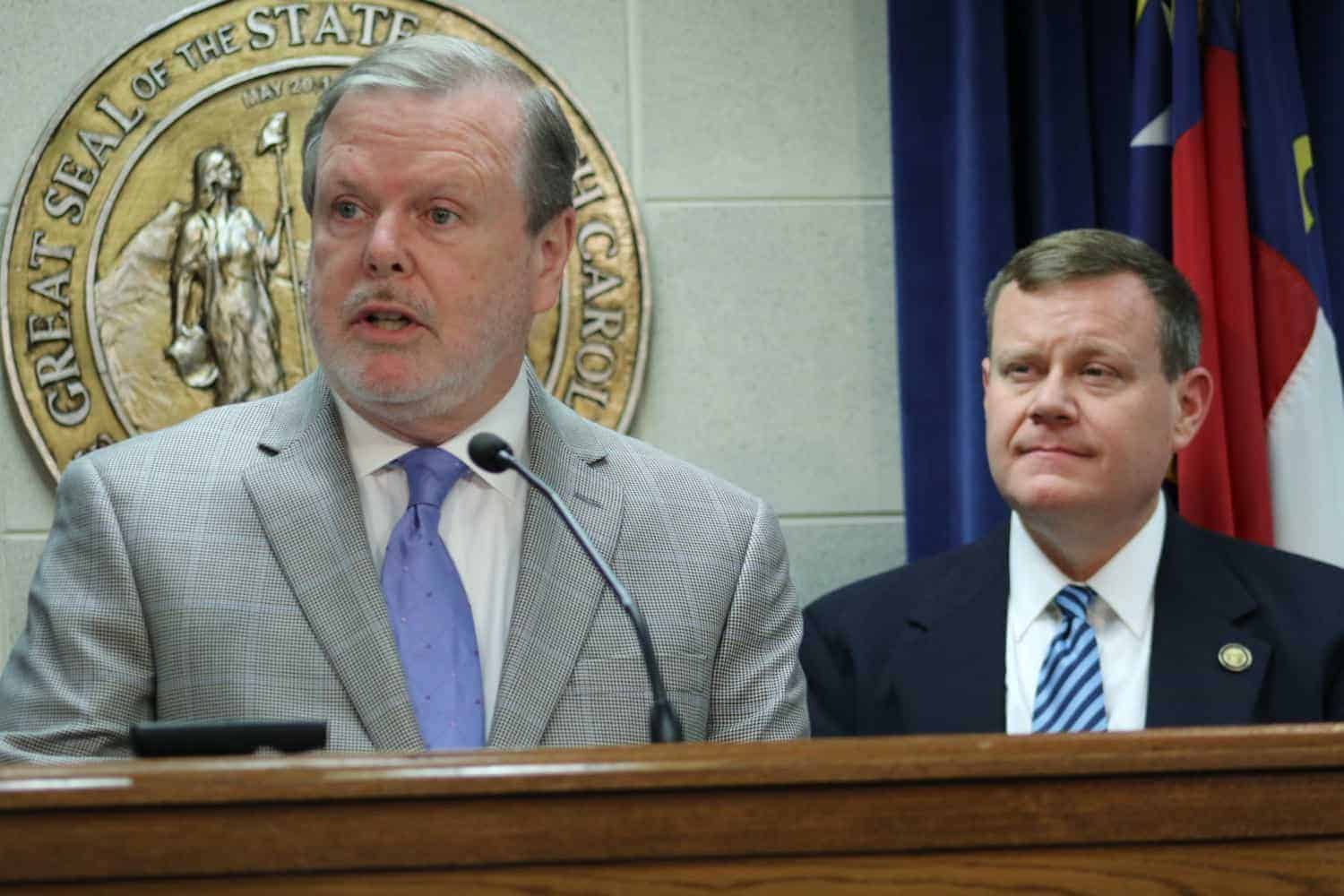Republican leaders presented some details of the compromise budget, which is slated to be released in full at some point today.
The press conference came after days of public criticism from Republicans directed towards Gov. Roy Cooper for not providing what they called specific counter proposals to their compromise budget plan.
“I’d rather have a budget that reflects some of our priorities instead of no budget at all,” said Senate President Pro Tempore Phil Berger, R-Rockingham.
In a press release from Berger’s office, Republicans said that Cooper had asked them to delay the budget and continue negotiating past the fiscal year deadline for passing a budget.
“We don’t believe that’s responsible, but we can change the budget at any time if we receive a legitimate counter offer,” Berger said.
While details were sparse, lawmakers did say that both teachers and principals would be getting raises under the compromise budget. Teachers would be getting roughly a 2% average increase in the first year and a little under a 2% increase in the second year, according to Rep. Jeffrey Elmore, R-Wilkes. Those numbers include step increases but not bonuses.
He said that teachers from 0-15 years of experience would only be getting their normal step increases, which means they’ll be seeing a $1,000 increase. The real salary increases come in the higher years of experience. Teachers from 16-20 years of experience will be getting a $500 raise in both years of the biennium. Teachers from 21-24 years of experience will get a $1,500 raise in the first year and a $500 raise in the second year. Teachers with 25 or more years of experience will be getting a $600 raise in the first year and a $500 raise in the second year. They will also receive bonus checks in the amount of $500 in October of both years “to say thank you for all their years of service to the state of North Carolina,” Elmore said. The pay increases all start in July as usual. The House budget proposal had called for pay increases to start mid-year, but that plan was nixed in the final budget compromise.
Lawmamkers also announced that they will skip the proposal to fund school construction and repair using a bond. That had been the plan pushed by the House. Instead, the state will utilize a pay-as-you-go plan, similar to that proposed by the Senate, to fund nearly $4.4 billion in K-12 capital investments over 10 years. The money will be drawn from the public school capital fund, needs-based capital funding, and the State Capital and Infrastructure Fund.
“That means construction on new schools can start years before bond financing projects could begin. This plan avoids wasting billions of dollars in unnecessary interest payments,” said Sen. Harry Brown, R-Onslow, a chair of the Senate appropriations committee.
House Speaker Tim Moore, R-Cleveland, said that Elmore, a public school teacher, was in the room during the budget compromise negotiations. He said that shows the commitment of lawmakers to representing teacher voices.
“I’m a parent of one son who’s still left in the public schools, and I can’t think of anything more important to fund than our public schools,” Moore said.
While no details were given, lawmakers also said that school safety is provided for in the budget.
Other points from a press release sent out after press conference:
- Budget includes Senate plan to give principals $30,000 in salary supplements for three years to work at low-performing schools
- Increases public education funding by more than $1.43 billion over two years
- Spends $91 million on school safety measures. Of that, $52 million is recurring dollars for mental health professionals and school resource officers
- Extra $43 million over two years for new mental health personnel
- Extra $12 million for textbooks, digital resources
- Extra $15 million for classroom supplies, including giving teachers $150 each in the first year and $200 each in the second year to buy their own supplies
- Gives community colleges $400 million over 10 years for capital funding
- Fully funds workforce development training programs for community colleges
- Increases community college career coaches funding
- Gives $3 million to allow students who can only get reduced-price lunches to get free lunches instead



